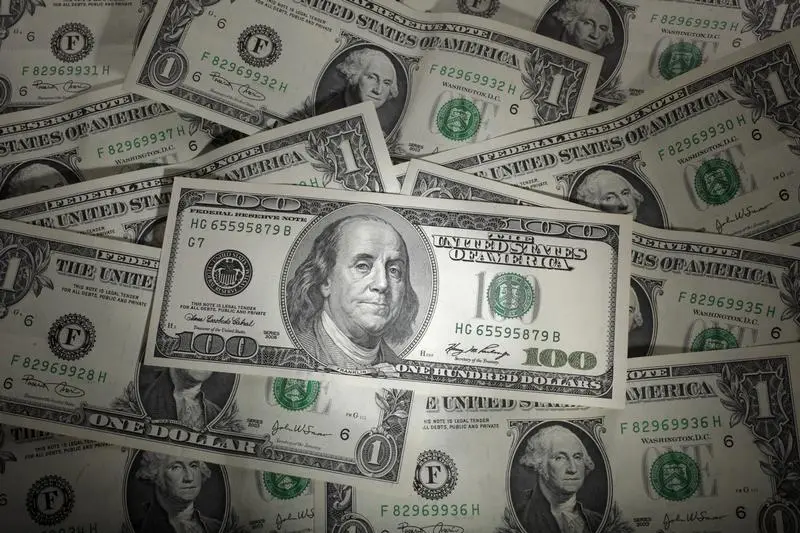PHOTO
TOKYO - The U.S. dollar held below a three-month high on Thursday, as market players tried to gauge when the Federal Reserve will likely begin cutting interest rates as Fed officials weighed in on Tuesday's inflation data.
While under renewed pressure this week, the yen kept off the three-month low hit against the dollar on Tuesday despite data showing Japan's economy slipped into a recession as it unexpectedly shrank for two straight quarters on weak domestic demand.
The U.S. inflation data pushed back bets on a first Fed rate cut to the middle of the year, after showing the consumer price index gained 3.1% in January on a year-on-year basis, compared with an expected 2.9% rise.
The market is currently pricing in no rate cut in March compared to 77% bets a month ago that rate cuts would start then, according to CME's FedWatch tool. Markets see a 60% chance the Fed will also hold rates at its May meeting. Chicago Fed President Austan Goolsbee said on Wednesday the Fed's path will still be on track even if price increases run a bit hotter-than-expected in coming months, and the central bank should be wary of waiting too long before it cuts interest rates.
Fed Vice Chair for Supervision Michael Barr said the Fed remained confident, but the January CPI numbers shows the United States' path back to 2% inflation "may be a bumpy one."
"The Fed are taking a long-view approach and their ‘path’ back to 2% allows for mishaps along the way. And comments from (Fed officials) after the hot inflation report attest to this," said Matt Simpson, senior market analyst at City Index.
The dollar index, which measures the greenback against six peer currencies, consolidated below a fresh three-month high of 104.97 touched on Wednesday, ahead of U.S. retail sales in January due later on Thursday. It last sat at 104.69.
The yen strengthened 0.23% versus the greenback at 150.26, continuing to hold firm after Japan's top currency officials warned against "rapid" yen moves the previous day and despite Japan's unexpectedly weak gross domestic product figures on Thursday.
The slip saw Japan lose its title as the world's third-largest economy, replaced by Germany.
Commonwealth Bank of Australia Currency Strategist Carol Kong saw the technical recession as having little impact on the dollar/yen, with the upcoming spring wage negotiations more important to both the Bank of Japan's (BOJ) policy outlook and the yen.
"Indeed, markets have continued to price a high chance of a BOJ rate hike in April despite the negative GDP print," Kong said.
Still, the heat from the dollar looks likely to persist as traders shift bets to a Fed rate cut later in the year, she said.
"Against this backdrop, further verbal intervention from Japanese authorities will not weigh on USD/JPY more than temporarily in our view."
Elsewhere in the region, the Aussie dollar slipped after a surprisingly weak set of jobs numbers, ticking down 0.15% to $0.648.
The kiwi fell 0.06% versus the greenback to $0.60825.
Sterling, meanwhile, was last trading at $1.2558, ahead of Britain's GDP data on Thursday.
The euro was mostly unchanged at $1.0727.
In cryptocurrencies, bitcoin was up 0.67% to $52,120.55. It rose as high as $52,544.51 earlier in the session, topping the 25-month high of $52,079 touched on Wednesday after the total value invested in bitcoin surpassed $1 trillion for the first time since November 2021.
(Reporting by Brigid Riley; Editing by Jamie Freed)





















